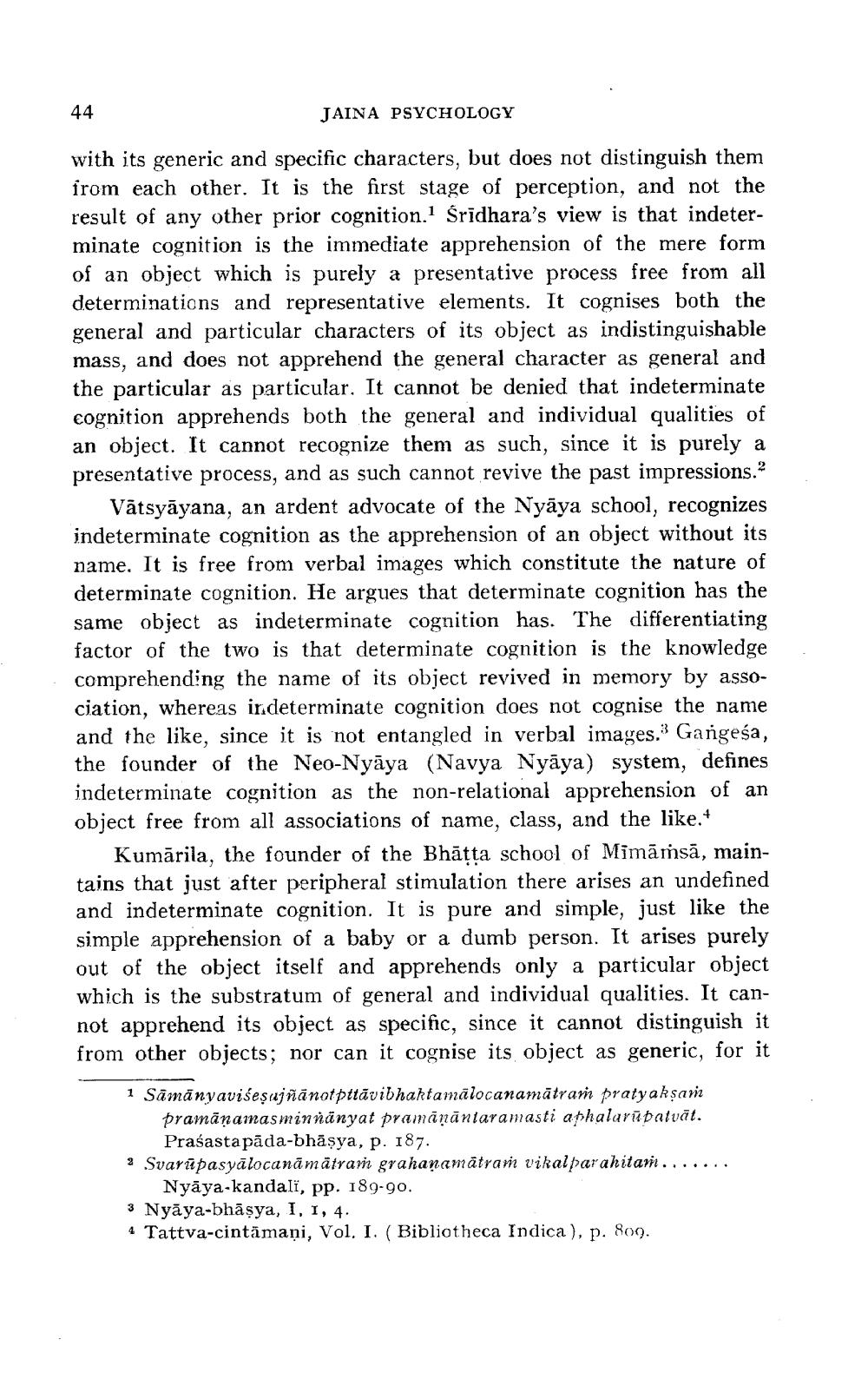________________
44
JAINA PSYCHOLOGY
with its generic and specific characters, but does not distinguish them from each other. It is the first stage of perception, and not the result of any other prior cognition. Śrīdhara's view is that indeterminate cognition is the immediate apprehension of the mere form of an object which is purely a presentative process free from all determinations and representative elements. It cognises both the general and particular characters of its object as indistinguishable mass, and does not apprehend the general character as general and the particular as particular. It cannot be denied that indeterminate cognition apprehends both the general and individual qualities of an object. It cannot recognize them as such, since it is purely a presentative process, and as such cannot revive the past impressions.?
Vātsyāyana, an ardent advocate of the Nyāya school, recognizes indeterminate cognition as the apprehension of an object without its name. It is free from verbal images which constitute the nature of determinate cognition. He argues that determinate cognition has the same object as indeterminate cognition has. The differentiating factor of the two is that determinate cognition is the knowledge comprehending the name of its object revived in memory by association, whereas indeterminate cognition does not cognise the name and the like, since it is not entangled in verbal images. Gangesa, the founder of the Neo-Nyāya (Navya Nyāya) system, defines indeterminate cognition as the non-relational apprehension of an object free from all associations of name, class, and the like. Kumārila, the founder of the Bhātta school of Mimāṁsā, main
hat just after peripheral stimulation there arises an undefined and indeterminate cognition. It is pure and simple, just like the simple apprehension of a baby or a dumb person. It arises purely out of the object itself and apprehends only a particular object which is the substratum of general and individual qualities. It cannot apprehend its object as specific, since it cannot distinguish it from other objects; nor can it cognise its object as generic, for it
1 Sāmānyavićeşujñānotpttāvibhaktamālocanamātram pratyakşam
pramānamasminnänyat pramāṇāntaramasti aphalarūpatvāt.
Praśasta pāda-bhāşya, p. 187. ? Svarūpasyālocanāmātram grahanamátram vikalparahitam...
Nyāya-kandals, pp. 189.90. 3 Nyāya-bhāsya, I, 1, 4. 4 Tattva-cintamani, Vol. I. (Bibliotheca Indica), p. 809.




